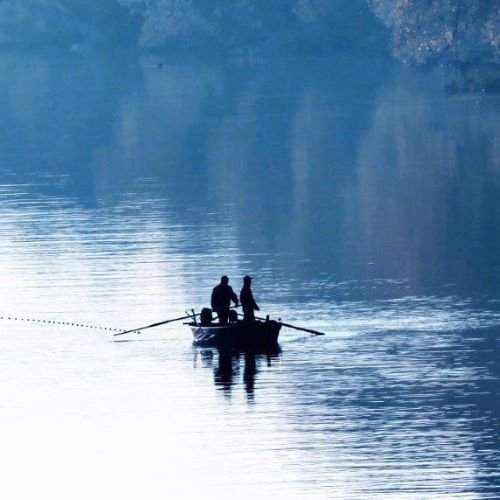Mission
Why a Global Network of Water Museums?
Museums around the world exhibit a unique repository of the different forms of humanity’s connection with water and its natural and cultural heritage. They display and explain the function of ancestral techniques, legacies, and traditional knowledge to promote the world’s outstanding variety of water-related heritages and values that have been passed down through generations.
Ancient systems of knowledge and far-seeing management visions forged by countless trial and error approaches produced lasting benefits for biodiversity and ecosystem services with which human societies have coexisted for centuries. Today, these systems can still inspire more farsighted uses of water with examples of nature-based solutions and zero-waste technology.
While promoting water awareness efforts, most of museums and institutions operate in isolation from each other. To avoid fragmentation, there is a need to exchange experiences and good practices through a large network, so that new water perceptions and attitudes towards water and more farsighted management models are disseminated to large audiences. Indeed, water museums can play together a key role to strengthen water awareness education worldwide.
In 2017, the Global Network of Water Museums (WAMU-NET) was founded in Venice to give new value to water history. In 2018, the Council of the Intergovernmental Hydrological Programme (UNESCO-IHP) acknowledged the WAMU-NET network as a ‘flagship initiative’ (Resolution n.XXIII-5). This resolution calls on people and institutions to enhance water sustainability education and implement urgent actions to repair our deteriorated relationship with water.

The key role of museums to boost a paradigm change on water-related perceptions and uses
The challenges of growing water scarcity, depletion of resources, pollution, desertification, melting glaciers and disrupted patterns of floods and droughts as a result of climate change, together with unprecedented declines in biological and cultural diversity, and the dramatic displacement of human populations, cannot be resolved only through technocratic approaches.
In recent decades, these one-dimensional approaches have conceived and used water mainly as a means of supporting economic development ‘at all costs’. However, the heavy consequences of such a development model are testified by the dramatic pollution of all aquifers and freshwater ecosystems worldwide. The value of water cannot be reduced only to its price, or ‘cost’.
In highly anthropized contexts, we witnessed how the natural hydrological cycle has been made increasingly ‘invisible’ and simultaneously far from people’s awareness. This condition has made the multiple heritages and values related to water more vulnerable than ever.
Today there is an urgent need to promote innovative, trans-disciplinary, and holistic perspectives to overcome unduly narrow technical approaches that have proved to be an inadequate response to the challenges of the global water crises. In this context, museums play a key role to pave the way for paradigm change and build a ‘new culture of water’. Together, museums can foster stronger connections with the most diverse ‘water worlds’ that consumer societies tend to forget and obliterate. WAMU-NET aims at cementing cooperation with these institutions worldwide.
Mission and goals of WAMU-NET
The Global Network of Water Museums is an independent non-profit NGO based in Venice, Italy. It’s managed by a General Assembly where all its members decide together future activities, based on the simple formula ‘1 member = 1 vote’. WAMU-NET is coordinated by a Management Board and an Advisory Committee. Today it groups 80 institutional members from 32 countries, with a yearly average audience of approx. 30 million visitors per year (data ante COVID).
As settled by the Charter, WAMU-NET is rooted on an ethical perspective which aims at informing, connecting, and mobilizing institutions and citizens to turn into reality the ideal of building ‘a new culture of water’. This promises to re-articulate and re-energize the unique relationship that humanity had with water as the most precious source of all life since time immemorial.
WAMU-NET actively promotes new relationships between humanity and water in order to reconnect people with the tangible and intangible heritage of water, including its social, cultural, ecological, artistic, and spiritual dimensions in a holistic perspective.
WAMU-NET aims at reaching larger audiences worldwide through museums to foster new visions for more far-seeing water management. Only through enhanced and shared activities on water awareness education it’s possible to prepare the ground to boost new visions and strategies of adaptation and co-existence between the needs of humans and the biosphere as a whole.

Further information
If you’d like to know more about us and you are interested to join the network, here you can download some useful documents:
- The registered Charter
- Team and governing bodies
- Who we are
- Members of the network
- Application Form to join the network
- Annual membership contributions
- The UNESCO-IHP Resolution n.XXIII-5 (2018) on water awareness education
- The UNESCO-IHP Resolution n.XXIV-7 (2021) on the world inventory of water museums
